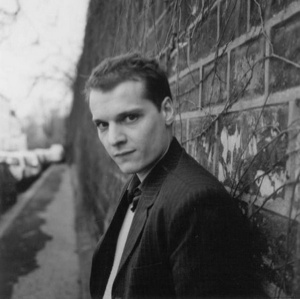 Undesirable? Among all the hiking trails that songwriting offers, those of Bénabar are among the most frequented. Take his last studio album, three years ago, “Reprise des négociations”: 1,300,000 copies, a smash hit. Just like the tour that followed, packed to the brim up to the final Bercy show. So, the singer who has earned his stripes as a popular artist, “the consensual chronicler of life as it goes”, with his “could be worse and could do better”, “his lifelong friends”, “his everlasting loves”, “his hopes and his cripples”.
Undesirable? Among all the hiking trails that songwriting offers, those of Bénabar are among the most frequented. Take his last studio album, three years ago, “Reprise des négociations”: 1,300,000 copies, a smash hit. Just like the tour that followed, packed to the brim up to the final Bercy show. So, the singer who has earned his stripes as a popular artist, “the consensual chronicler of life as it goes”, with his “could be worse and could do better”, “his lifelong friends”, “his everlasting loves”, “his hopes and his cripples”.
Let’s understand, or rather let’s hear him: this new album has much to be delighted about. Besides the darker side of the artist appearing more clearly here, if one dares to say so, he continues the evolution started with Reprise des négociations; takes it further; goes where it wants to go. He dares. He surprises. Bénabar is not just doing Bénabar.
He could have made a procedure of his style. Not him. Not interested. He wrote his songs in his corner, as usual, then changed habits. Starting with the production choices. So far, he approached his songs on the piano. This time, it started on a guitar that the new songs were born. Then, to the arrangers Jean-François Berger and Fabrice Ravel Chapuis, already studio partners during the last session, François Delabrière joined. He mixed Bénabar’s previous album, produced those of Kyo and Daniel Darc, among others.
This new album sounds like that light and stylish pop of the 60s that already danced on the album before, confirming here the classy shine of its brass, a daring elegance à la Nino Ferrer, a melancholic joy of Italian canzonettas. It’s a variety music, a term always claimed by Bénabar while it has long provoked disapproval from the music industry. It must be said that often, variety has rhymed with emptiness. He has chosen the efficiency of the genre.
Bénabar also revisits his favorite themes, like that of friends. From “Allez!”, a bittersweet encounter between a depressive and a well-meaning person, to “Pas du tout”, a mocking dialogue between musicians and the singer (collaborative accomplice of this title: Louis Chédid, author of the musical comedy Le Soldat rose in which Bénabar was a performer); and by “Où t’étais passé?”, a scene of jealousy to a friend. In his paradoxical way, this is the sole love song of the album which swaps “I love you” for “I am not lovable” (“Infréquentable”), “You don’t love me anymore” (“Reflets verts”), “You are leaving me” (“Si j’avais su”)… “L’Effet papillon”: when all poetic anthologies recommend moving from particular to general, our iconoclastic author starts from the universal – the sinking of the planet – to move to the intimate – sunburn or headbutt.
Whatever his variations on the theme, Bénabar always casts a penetrating look at the times and the beings who promise and pass.


